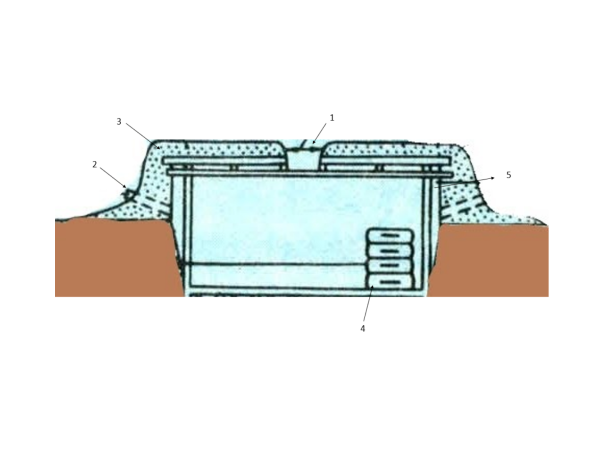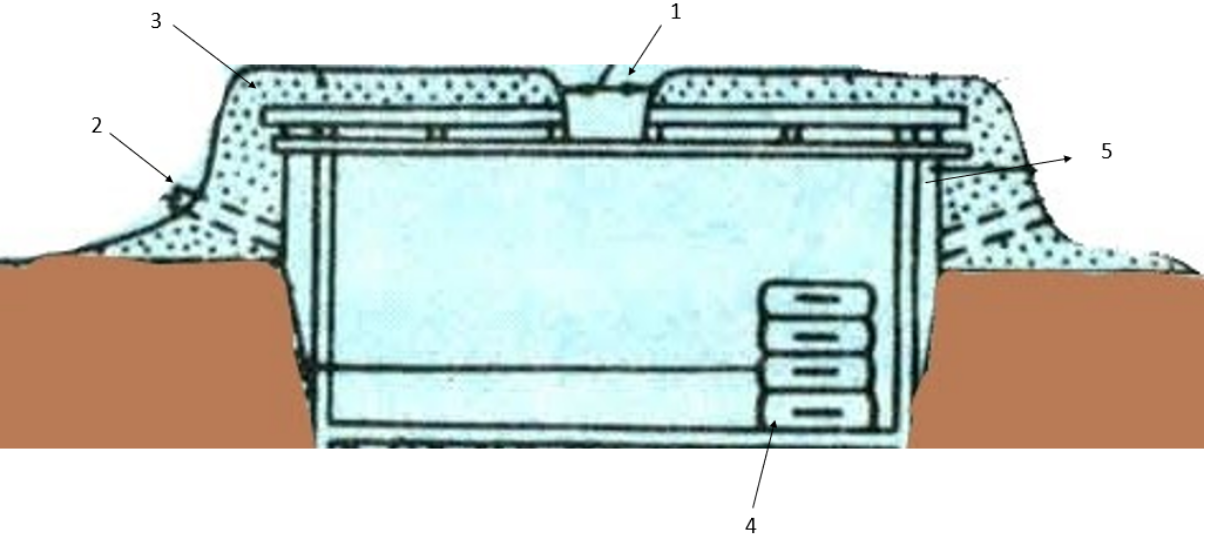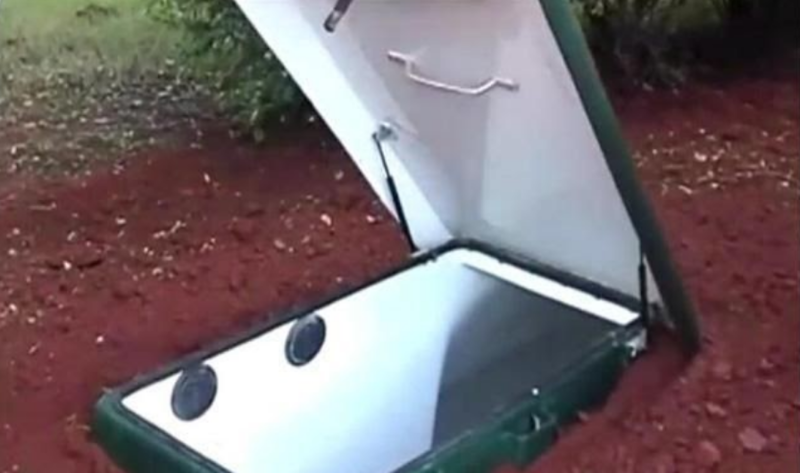(Page créée avec « Entrance to the Cellar ») |
(Page créée avec « *It will produce swamp gas, so be careful before entering the cellar to avoid explosion. *Not suitable for all foods, such as meat, fish, bananas, etc. ») |
||
| (16 révisions intermédiaires par le même utilisateur non affichées) | |||
| Ligne 19 : | Ligne 19 : | ||
|Material=Entrance to the Cellar | |Material=Entrance to the Cellar | ||
| − | + | Exhaust Vent | |
| − | + | Soil | |
| − | + | Boxes of vegetables and fruit | |
| − | + | Stone walls and ceiling | |
|Tools= | |Tools= | ||
}} | }} | ||
{{Tuto Step | {{Tuto Step | ||
| − | |Step_Title= | + | |Step_Title=Making a hole |
| − | |Step_Content= | + | |Step_Content=First, we dig a big pit in the ground. |
}} | }} | ||
{{Tuto Step | {{Tuto Step | ||
| − | |Step_Title=Construction | + | |Step_Title=Construction of the Cellar |
| − | |Step_Content= | + | |Step_Content=And then we build a cellar using stones and cement. Remember to create two exhaust vents. Since in the cellar there are a lot of gases like CO2, CH4, etc. and it lacks O2. So before entering the cellar, we need to open the exhaust vents to have enough O2. |
}} | }} | ||
{{Tuto Step | {{Tuto Step | ||
| − | |Step_Title= | + | |Step_Title=Creation of a sealed entrance |
|Step_Content= | |Step_Content= | ||
|Step_Picture_00=Cellier_en_sous_sol_Capture_d_e_cran_2020-03-04_a_15.39.51.png | |Step_Picture_00=Cellier_en_sous_sol_Capture_d_e_cran_2020-03-04_a_15.39.51.png | ||
}} | }} | ||
{{Tuto Step | {{Tuto Step | ||
| − | |Step_Title= | + | |Step_Title=Bury the cellar with soil |
|Step_Content= | |Step_Content= | ||
}} | }} | ||
{{Tuto Step | {{Tuto Step | ||
| − | |Step_Title= | + | |Step_Title=Adding water |
| − | |Step_Content= | + | |Step_Content=We have to put some water in the cellar. When it's too cold, water will freeze and produce heat. On the other hand, it will volatilize to absorb the heat. |
}} | }} | ||
{{Notes | {{Notes | ||
| − | |Notes= | + | |Notes=Advantage: |
| − | * | + | *Being able to avoid the sun and have a constant temperature all year round. |
| − | * | + | *The accumulation of CO2 and the lack of O2 slow down the rottenness of fruits and vegetables. |
| − | * | + | *In addition, it is quite easy to build and will be used for a long time. |
| − | * | + | *It can conserve a large batch of vegetables and fruits. |
| − | * | + | *The height difference between the entrance and the ground prevents the entry of water when it rains often. |
| − | + | Disadvantage: | |
| − | * | + | *It will produce swamp gas, so be careful before entering the cellar to avoid explosion. |
| − | * | + | *Not suitable for all foods, such as meat, fish, bananas, etc. |
<br /> | <br /> | ||
Version actuelle datée du 4 mars 2020 à 16:43
Description
As the drawing shows, it is a semi-underground cellar used to store vegetables and fruit. Thanks to the difficulty of heat transfer in the underground, the cellar is able to have a constant temperature all year round, 0℃- 5℃. In addition, the tightness of the cellar ensures humidity. It is suitable for onions, garlic, zucchini, potatoes, cabbage, etc.
Étape 1 - Making a hole
First, we dig a big pit in the ground.
Étape 2 - Construction of the Cellar
And then we build a cellar using stones and cement. Remember to create two exhaust vents. Since in the cellar there are a lot of gases like CO2, CH4, etc. and it lacks O2. So before entering the cellar, we need to open the exhaust vents to have enough O2.
Étape 4 - Bury the cellar with soil
Étape 5 - Adding water
We have to put some water in the cellar. When it's too cold, water will freeze and produce heat. On the other hand, it will volatilize to absorb the heat.
Notes et références
Advantage:
- Being able to avoid the sun and have a constant temperature all year round.
- The accumulation of CO2 and the lack of O2 slow down the rottenness of fruits and vegetables.
- In addition, it is quite easy to build and will be used for a long time.
- It can conserve a large batch of vegetables and fruits.
- The height difference between the entrance and the ground prevents the entry of water when it rains often.
Disadvantage:
- It will produce swamp gas, so be careful before entering the cellar to avoid explosion.
- Not suitable for all foods, such as meat, fish, bananas, etc.
Draft



 Français
Français English
English Deutsch
Deutsch Español
Español Italiano
Italiano Português
Português